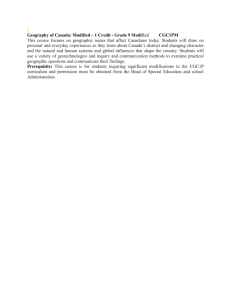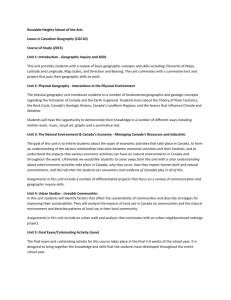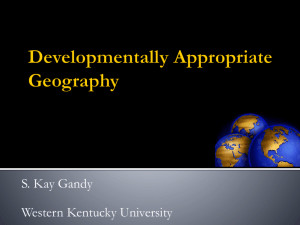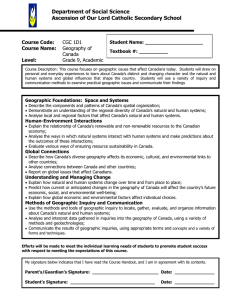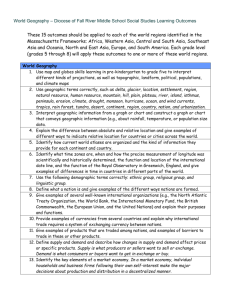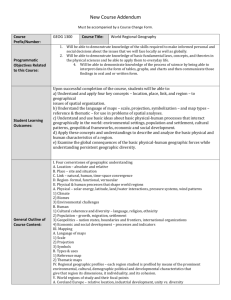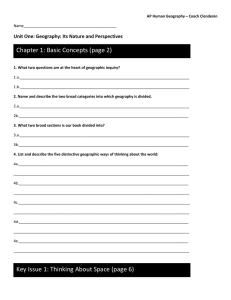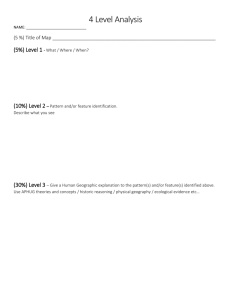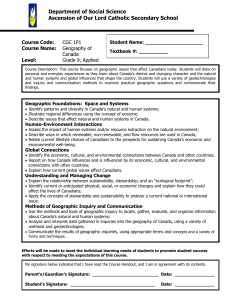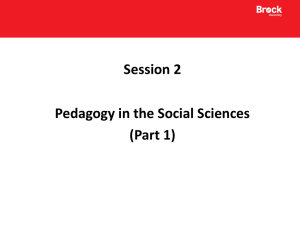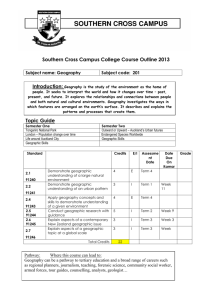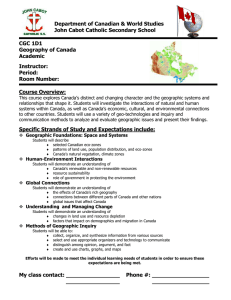Course Outline Guelph Collegiate Vocational Institute Department:
advertisement
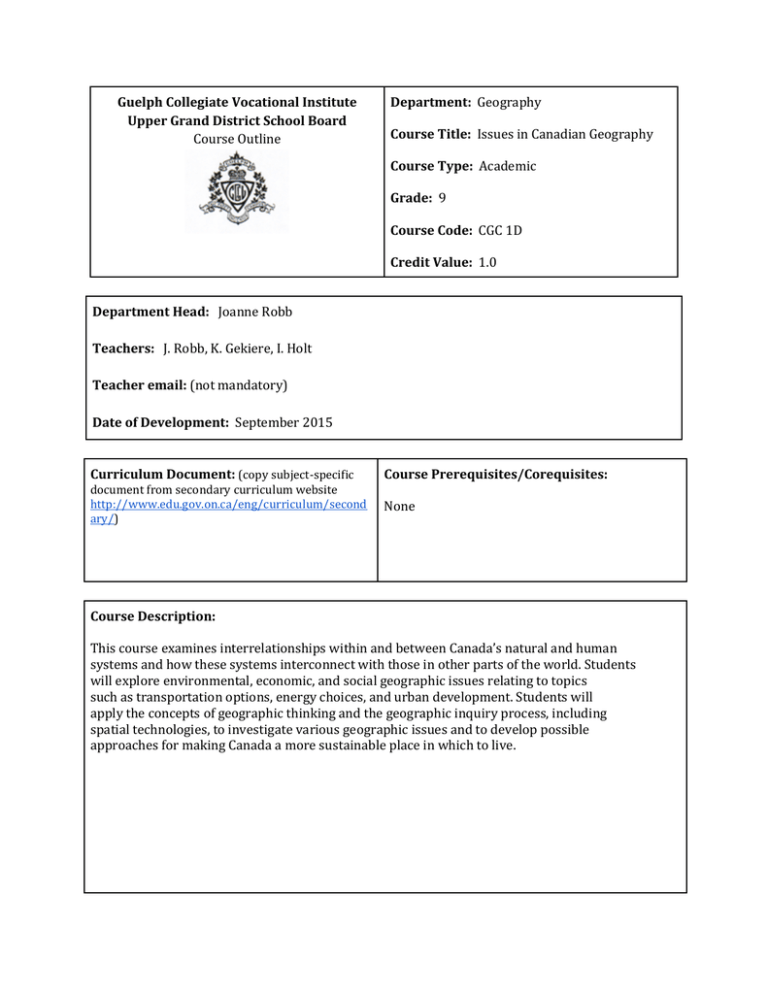
Guelph Collegiate Vocational Institute Upper Grand District School Board Course Outline Department: Geography Course Title: Issues in Canadian Geography Course Type: Academic Grade: 9 Course Code: CGC 1D Credit Value: 1.0 Department Head: Joanne Robb Teachers: J. Robb, K. Gekiere, I. Holt Teacher email: (not mandatory) Date of Development: September 2015 Curriculum Document: (copy subject-specific document from secondary curriculum website http://www.edu.gov.on.ca/eng/curriculum/second ary/) Course Prerequisites/Corequisites: None Course Description: This course examines interrelationships within and between Canada’s natural and human systems and how these systems interconnect with those in other parts of the world. Students will explore environmental, economic, and social geographic issues relating to topics such as transportation options, energy choices, and urban development. Students will apply the concepts of geographic thinking and the geographic inquiry process, including spatial technologies, to investigate various geographic issues and to develop possible approaches for making Canada a more sustainable place in which to live. Term Work (70% of the final mark) Unit Title Big Ideas Introduction, Geographic Map & Globe Skills Inquiry & Skill Development People have a role in Liveable Communities determining the sustainability of human and physical systems. Physical Processes impact Interactions in the Physical human action and have helped Environment shape Canada’s natural landscapes. Canada is rich in nonManaging Canada’s Resources renewable resources, which and Industries affects their availability, use and value. Global trends and Canada’s Changing Populations large size presents many challenges to Canada’s demography. Unit Culminating Tasks Test Paragraph Food mapping Ecological Footprint Test Test Debate Poster Project Test Paragraph Best Place to Live Project Process Culminating Tasks/Exams (30% or the final mark) Course Culminating Tasks/Exams Description Best Place to Live 10% - Multimedia Presentation Exam 20% - 1.5 hour written assessment to occur during the exam block Based on the range of students’ learning needs, a selection from the strategies listed below may be utilized. Refer to list of teaching and assessment strategies. Teaching Strategies: A wide variety of teaching strategies are used including but not exclusive to: field studies, Promethean software, GPS, computer simulations, ESRI map simulations, debates, discussions, and neighbourhood assessment & critique. See the link above for further strategies used. Assessment and evaluation strategies: Diagnostic Formative Summative Textbooks/Learning Resource Materials (align with Policy 603) Making Connections: Issues in Canadian Geography Chrome Books Online simulations UGCloud course website and/or folder GPS units Fees for Learning Materials/Activities Learning Materials/Activities Field Trip Please refer to the GCVI Student Handbook for our school policies on: ● academic integrity ● late and missed assignments Cost $10-$15
